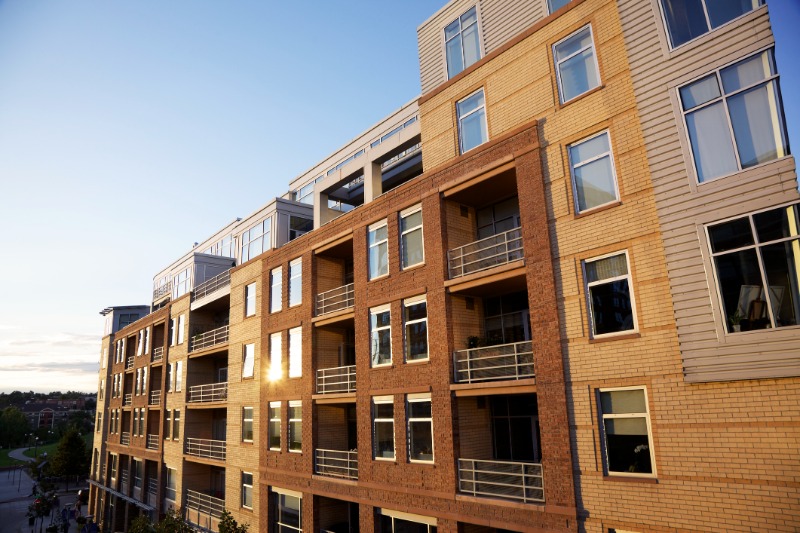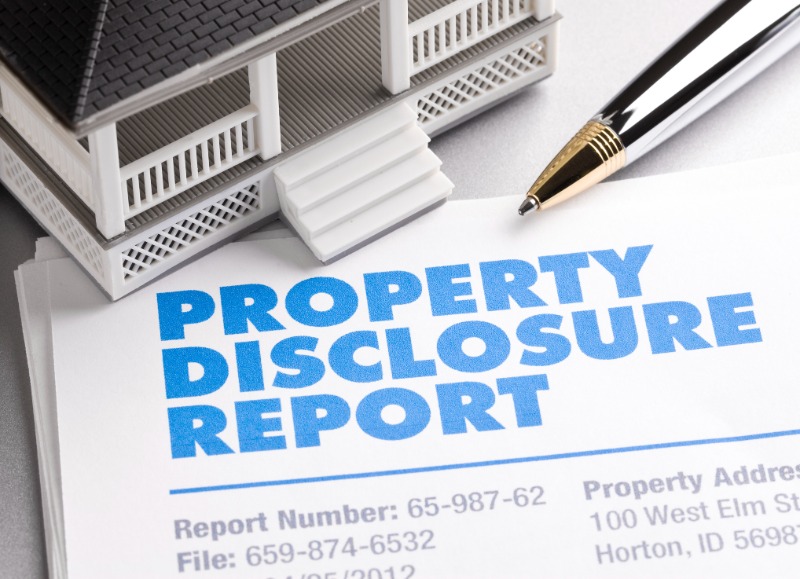Denver, Colorado is a place of opportunity for many looking to make a new home. It’s a city that enjoys the best of urban living within close-knit communities. It has a burgeoning job market, a renowned culinary scene, and a plethora of outdoor activities, and these are just a few of the draws. With all it offers, life in Denver, Colorado appeals to a broad spectrum of individuals and families.
However, those eager to dive into this vibrant housing market should know that Denver comes with its own set of real estate regulations and laws. These regulations touch on everything from property taxes and zoning restrictions to environmental considerations and historical preservation, all of which can impact the viability, cost, and future appreciation of real estate investments.
Understanding at least the basics of Colorado real estate law will help homebuyers, owners, and investors avoid any significant oversights and they’ll be able to make fully informed and confident decisions about their real estate venture in Denver. Here, we’ll go through some of the most important rules and regulations regarding Denver real estate.
Local Government Influence
Denver’s local government, which operates under a mayor-council government structure, plays a pivotal role in shaping the city’s real estate landscape. Both the Mayor of Denver and the Denver City Council have significant influence over policies, including those related to real estate. While this may seem as if it could lead to disjointed or conflicting policies and regulations, this structure actually facilitates a more nuanced approach to real estate regulation. It allows for adjustments that reflect the unique needs and characteristics of different areas within Denver.
Colorado real estate law provides Denver’s local government the authority to implement zoning laws, which dictate how land within the city can be used. The local government’s influence extends to the enforcement of building codes and safety standards. These regulations ensure that all structures meet specific requirements for design, construction, and maintenance, contributing to the overall safety and livability of the city. The Denver City Council also plays a key role in property tax assessments, which can significantly impact the cost of owning real estate in the city.
For individuals looking to purchase or develop property in Denver, navigating these codes can be a complex process and requires thorough due diligence and sometimes even professional guidance.
Zoning Regulations

Denver is generally divided into various zoning districts, each with its own set of rules regarding land use and development. These districts are categorized broadly into residential, commercial, mixed-use, and industrial zones. The specific designation of a district dictates what types of buildings can be constructed, their uses, and even the height and density of developments.
- Residential Zones: In residential zones restrictions are placed on the types of structures that can be built, primarily to preserve the character and livability of neighborhoods. Potential homebuyers looking at areas like the historic Baker district or the serene Washington Park neighborhood can be certain that the lifestyle they are buying into will remain unchanged. These areas are cherished for their distinct character, which the zoning laws aim to protect. Any new development or renovation projects must adhere to strict guidelines that maintain the area’s aesthetic and structural integrity.
- Commercial and Mixed-Use: On the other hand, commercial and mixed-use zones offer more flexibility but come with their own set of challenges. Consider the bustling Lower Downtown (LoDo) district, where mixed-use zoning allows for a combination of residential living, retail, and office spaces. For real estate investors, these areas present lucrative opportunities due to their high foot traffic and centrality. However, navigating the mix of historical preservation requirements and modern development needs requires careful planning and understanding of local regulations.
- Industrial: Industrial zones are predominantly located in the outskirts and less central areas of Denver, such as the Globeville and Elyria-Swansea neighborhoods. These areas are designated for manufacturing, distribution, and warehousing activities. While these might not be the first choice for homebuyers there are still some interesting choices for homebuyers in these areas.
Bear in mind that unless it is a highly residential or historic area, the regulations within a zoning area may change to facilitate city improvements. Take, for example, the River North District (RiNo), which has seen a transformation from an industrial zone to a vibrant cultural and residential area. It’s always a good idea to check in with City Hall to inquire about zoning regulations and potential changes in a neighborhood you’re interested in.
Building Codes and Permits
Denver’s approach to building codes is both comprehensive and meticulous, aiming to ensure safety, sustainability, and resilience in all construction and renovation projects. Many of these codes are based on international codes and standards but tailored to meet the specific needs and challenges of Denver’s unique environment.
Adhering to building codes
Home buyers looking to renovate properties they purchase, need to fully understand and adhere to the local building codes. Whether it’s updating a kitchen or adding an extension, every modification must comply to ensure that the structural integrity of the home is maintained and that any modifications are safe for occupants.
Buyers who are planning to make modifications should only move forward with their purchase once they fully understand the specific and general codes of the area. At the same time, buyers should also familiarize themselves with the permits they’ll need to apply. These permits are a formal go-ahead from the city, confirming that their planned renovations align with local building codes and zoning regulations. The process involves submitting detailed plans of the proposed work for review by city officials.
Special considerations for historical homes
Denver is home to many historical neighborhoods, which is one of the best things about living in Denver. However, this also presents a variety of renovation challenges for potential homebuyers and real estate investors. In areas like Capitol Hill or the Highlands, homes are not only subject to the standard building codes but may also fall under additional regulations designed to preserve the historical character of the neighborhood. Buyers who are interested in a historic home should thoroughly discuss any renovations they plan with Denver, Colorado real estate agents before finalizing their purchase.
Homeowners Associations (HOA)
Many communities and neighborhoods in Denver are overseen by a Homeowners Association (HOA). These organizations play a significant role in managing and maintaining the quality of life within various communities. They are responsible for enforcing rules and regulations that aim to preserve property value and ensure that neighborhoods remain desirable places to live. These associations are typically established under the Colorado Common Interest Ownership Act (CCIOA), which provides a legal framework for their operations and interactions with homeowners.
A homeowner’s rights and responsibilities
Homeowners within an HOA have specific rights and responsibilities that play a large role in the harmonious functioning of their communities. Rights include access to common areas, participation in association meetings, and the ability to vote on matters affecting the community. Additionally, homeowners have the right to review the association’s financial statements and records, ensuring transparency in how fees and assessments are managed.
Prospective homeowners should familiarize themselves with an HOA’s declaration, bylaws, and rules before purchasing a home. This due diligence can prevent future surprises and conflicts, ensuring the homeowner’s lifestyle aligns with community expectations.
Of course, it is completely up to the homeowner how involved they wish to be within their community and many may choose to fully entrust the well-being of the community to the HOA. However, it is reassuring that homeowners have a voice, and to a large extent, are empowered to shape their communities.
Property Disclosures

Seller’s disclosure requirements serve as an important checkpoint for potential homebuyers. Colorado real estate law legally requires sellers to provide prospective buyers with detailed information about the property’s condition, including any known defects or issues that could affect the property’s value or livability. This transparency is designed to protect buyers from unforeseen complications and ensure an informed purchasing decision.
The scope of these disclosures covers a wide range of property aspects, from the structural integrity of the building to the functionality of systems like heating, plumbing, and electrical. Additionally, sellers must disclose any history of pest infestations, water damage, or use of the property for methamphetamine production, which could pose health risks.
If a seller discloses that the property has a flaw, let’s say an outdated electrical system that doesn’t meet current safety standards, then this information should significantly influence a buyer’s decision-making process. It could be a factor in any negotiations or contingencies put forward but it could also prepare the buyer for necessary upgrades post-purchase.
Environmental Regulations
The city’s environmental regulations are designed not only to protect the natural landscape but also to promote development that will benefit residents. Key to Denver’s environmental strategy is the Green Buildings Ordinance, which requires developers and property owners to adopt sustainable development practices. This ordinance encourages the use of green roofs, energy-efficient designs, and renewable energy sources in new developments and renovations.
For those looking to call Denver home, this mindful regulation and vibrant community life underscores the city’s appeal. It makes Denver an attractive option for environmentally conscious buyers aiming for a harmonious balance between urban living and ecological responsibility.
Fair Housing Laws
Fair housing laws provide a framework to ensure equal opportunity in the housing market. These laws are grounded in the federal Fair Housing Act, which prohibits discrimination based on race, color, religion, sex, disability, or familial status. Additionally, Colorado’s own fair housing laws reinforce and expand these protections, addressing the specific needs and concerns of the state’s residents. Together, these legal standards aim to create an inclusive housing environment that reflects the diversity and dynamism of Denver’s population.
For homebuyers, this means not only fair treatment during the purchase process but also a better chance to be part of vibrant, diverse communities.
Legal Considerations in Contracts
Before diving into Denver’s real estate market, buyers should have a sound understanding of the most common legal clauses outlined by Colorado real estate law. These clauses define the terms and conditions of property transactions and protect the interests of all parties involved. Among various contingency clauses that can be included in real estate contracts, three stand out:
- Financing Contingency: This clause is of the highest importance as it specifies that the purchase offer is contingent upon the buyer securing financing from a lender. It outlines the type of financing, terms, and the timeframe within which the buyer can obtain financing, providing a safeguard that allows the buyer to withdraw without penalty if financing cannot be secured.
- Home Inspection Contingency: This provision allows the buyer to have the property inspected within a specified period. If significant defects are found, the buyer can either negotiate repairs or withdraw from the contract without losing their earnest money deposit.

- Title Clause: A clear title is necessary for the legal transfer of property ownership. This clause guarantees that the seller has the legal right to sell the property and that there are no undisclosed liens, encumbrances, or claims against the property.
The complexity of real estate contracts, coupled with the specifics of Colorado real estate law, underscores the importance of legal review before signing any agreements. A thorough examination by Denver, Colorado real estate agents and legal professionals can identify potential issues, ensure that the contract aligns with the buyer’s or seller’s interests, and confirm compliance with local and state regulations. This is vital in avoiding future disputes and ensuring a smooth transaction.
Find Your Dream Home in Denver with Usaj Realty
If you’re ready to explore the housing market and life in Denver, Colorado, make sure you work with a trusted real estate firm like Usaj Realty. As passionate local specialists in residential real estate sales, Usaj Realty is an invaluable partner for any homebuyer or investor looking at Denver real estate.
Schedule an initial consultation with the Usaj Realty team by calling 720.398.2999 or by leaving a message here.




